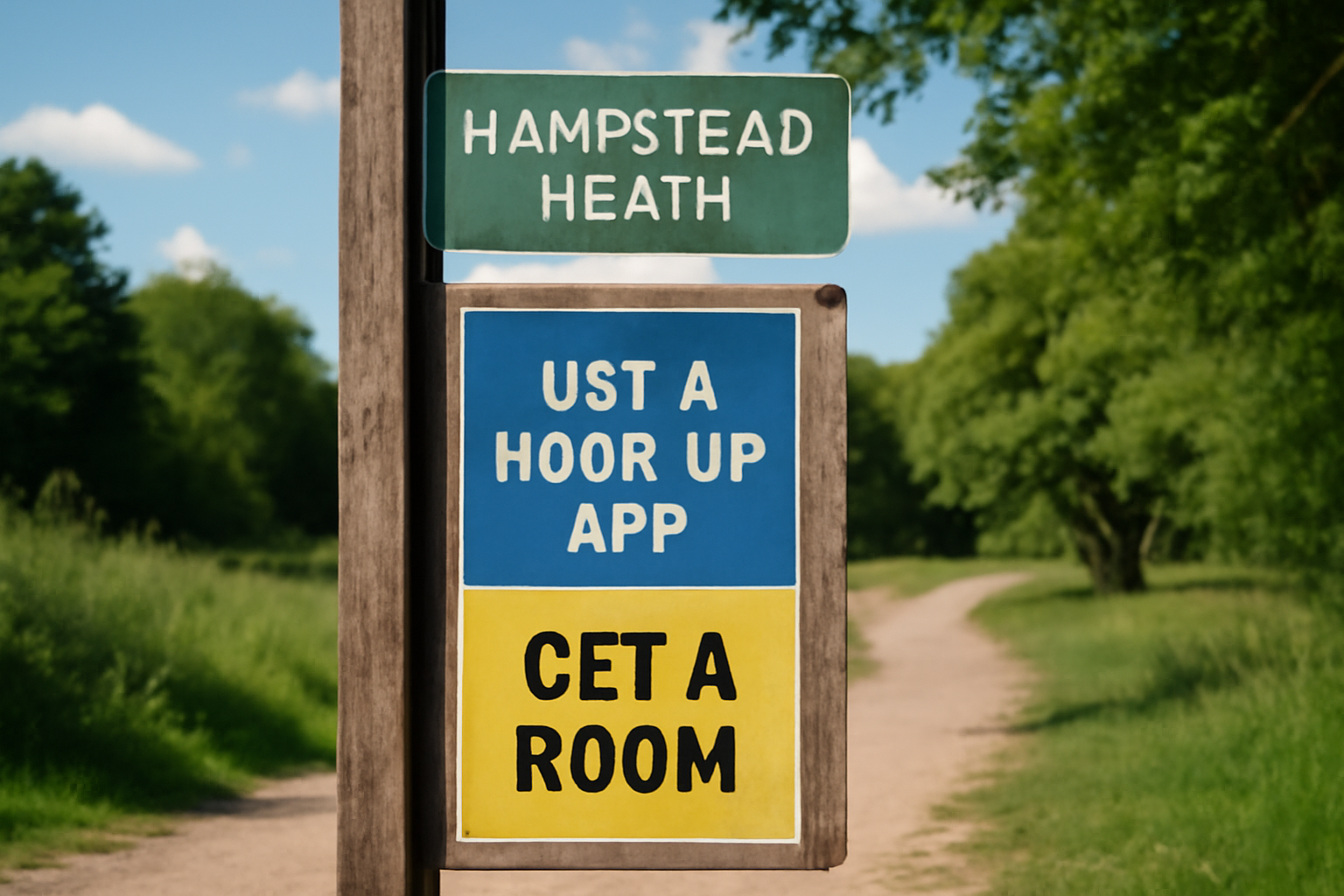
In recent days, a series of provocative posters have surfaced around Hampstead Heath in North London, a well-known socializing ground for gay men, sparking lively discussion within the community. The posters suggest that gay men should "use a hook-up app" and "get a room," urging them to leave the historic cruising area.
Hampstead Heath has long been a popular spot for cruising, a practice dating back to the 19th century when homosexuality was illegal in the UK. Despite changes in the legal landscape, the area has retained its significance as a meeting place for gay men. While cruising itself isn't illegal, indecent exposure remains a criminal offense under UK law.
The Legal Landscape of Public Spaces
Under the Sexual Offences Act 2003, engaging in sexual activities in public isn't inherently illegal unless there is a reasonable chance that someone could witness it. However, public sex in toilets is clearly prohibited by law. These nuances in legality have left room for interpretation and continue to fuel discussions around public cruising spots like Hampstead Heath.
The City of London Corporation, which owns Hampstead Heath, stated that unauthorized posters would be removed promptly. "Our teams undertake regular vegetation management to support biodiversity and ensure the heath remains a welcoming space for everyone. We encourage all visitors to use the heath respectfully and considerately," a spokesperson commented. They also confirmed the removal of the posters as part of their routine patrols and clean-ups.
Community Reactions and Historical Significance
Community members have reacted strongly to the appearance of these posters. An anonymous older gay man shared his perspective with a local newspaper, stating, "We were here first," reflecting a generational divide regarding cruising practices. He expressed a preference for traditional methods of meeting people over modern hook-up apps.
Local resident Michael Pitt suggested that the individuals responsible for the posters might be newcomers to the area, noting a "live and let live" attitude among long-time residents. "The gay community was oppressed for many years, so they would meet men outside to avoid this. You won’t stop it now," he explained, adding that he personally removed one of the posters to prevent it from "stirring discrimination" and "encouraging division."
Legendary musician George Michael, who once owned a property near Hampstead Heath, famously acknowledged the area's reputation. "You can’t be in shame about the situation if the person isn’t shamed, and I am certainly not that," he once remarked. Michael was arrested for cruising in California in 1998, yet he remained unapologetic about his visits to Hampstead Heath, emphasizing the acceptance of such activities by the police and the safety of the location.
Following his arrest, George Michael released the music video for "Outside," which depicted men dressed as police officers engaging in affectionate acts and portrayed various couples meeting in public spaces. The video was seen as a bold statement against the stigma surrounding cruising.
Ongoing Discussion and Respectful Engagement
The emergence of these posters has reignited discussions about the rights and spaces of the LGBTQ+ community. It highlights the ongoing challenges faced by those who seek to engage in activities that, while now legal, have been historically marginalized.
The issue underscores the importance of respectful dialogue and understanding within communities. Many believe that rather than enforcing exclusionary measures, there should be a focus on fostering an inclusive environment where everyone can coexist.
As this story develops, we invite you to share your thoughts in the comments below, keeping the conversation respectful and considerate. The discourse surrounding public spaces, legality, and historical precedent continues to evolve, reflecting broader societal shifts in the acceptance and understanding of LGBTQ+ issues.
Related Posts
Triumphant Trans Woman Wins Legal Battle and Inspires Others to Stand Up for Their Rights
Breaking new ground: a landmark victory in transgender rights After battling in courtrooms and enduring endless challenges, Diana Portillo, a transgender woman, has secured a monumental victory in her decade-long fight against workplace discrimination. The result? Nearly $1 million awarded in a historic settlement. But this isn't just a win on paper—it represents a powerful precedent in combati [...]
Pride Month in Latin America: Protests and Demands for Equality
**Celebrating Pride and advocating LGBTQ+ rights in Latin America** Pride Month in Latin America was a lively mix where celebration met activism. Communities united, not just throwing a party but making a stand—demanding equality and pushing governments toward better protection and rights recognition. Throughout Latin America, pride events erupted in marches and cultural displays, each with a c [...]
Transgender Erasure Actions Implemented by National Park Service
```html Trump administration's impact on national park service and transgender recognition The Trump administration made notable moves in undermining transgender representation, which included directing agencies like National Park Service not include "T" and "Q" when they refered “LGBTQ” in any official communication. This move seems part a broader plan by this administration aimed at reducin [...]